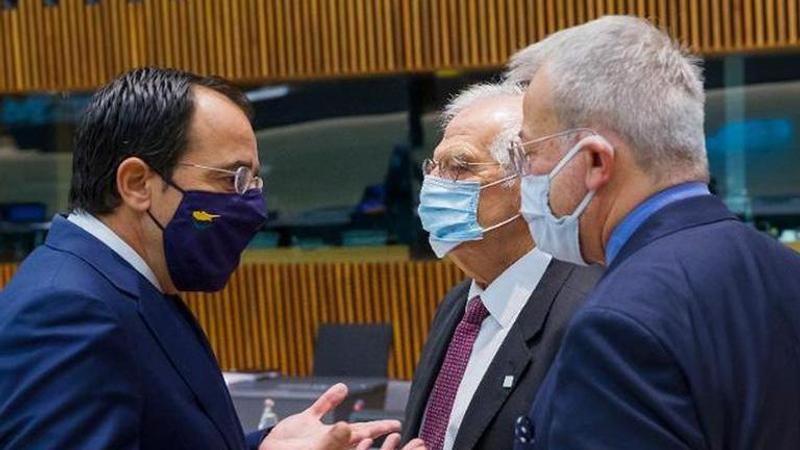Published 02:23 IST, October 15th 2020
European Union agrees to slap sanctions on Russian officials over Navalny attack
European Union leaders on Wednesday, October 14 agreed to impose sanctions on six Russian officials and one organisation over the attack on Navalny.

Advertisement
European Union leaders on Wednesday, October 14 agreed to impose sanctions on six Russian officials and one organisation over the alleged poisoning of Russian opposition figure Alexei Navalny. Addressing a high-level meeting in Brussels, the EU ambassadors urged their partners in the union to freeze the assets and impose travel bans on those suspected of involvement in the case in a bid to combat the use and spread of chemical weapons.
Associated Press quoted EU foreign policy chief Josep Borrell saying, "It was a complete acceptance by all member states". “Everybody was supporting this proposal", he added.
As per reports, Borrell did not provide any further details about who might face the sanctions or when the measures might come into force but clarified that technical work on preparing the action will now proceed.
Navalny urges EU for strong actions
Earlier, Kremlin critic Alexei Navalny had urged the European Union to take strong action against perpetrators close to the Russian government as he continues to recover from poisoning. The German government had said on October 6 that it is discussing the actions to be taken against Russia after the global chemical weapons watchdog confirmed the use of undeclared variant in the Novichok family to poison Putin’s critic.
Last week, Dutch foreign minister Stef Blok reaffirmed the Netherland's support for Germany and France calling for sanctions on Russia over the alleged poisoning of Putin critic Alexei Navalny on Wednesday, October 7. Earlier, Foreign Ministers of Germany and France issued a joint statement claiming that the Russian opposition figure was poisoned with "a military-grade nerve agent from the 'Novichok' group developed by Russia". In response to this, the Russian Foreign Ministry criticised Berlin and Paris while rejecting the joint statement as false and unacceptable.
German health authorities had confirmed the poisoning of Navalny with a nerve agent from the Novichok group, citing toxicological test results. Later, specialist laboratories in France and Sweden also confirmed the poisoning with the Soviet-style nerve agent Novichok.
However, Russia has denied all the allegations and said that the nerve agents are not being developed in the country. Navalny fell ill on a domestic flight in Russia on August 20 and was treated in a hospital in Omsk. He was later moved to Berlin-based Charite hospital and was discharged on September 23.
(With AP Inputs and Image)
02:23 IST, October 15th 2020




